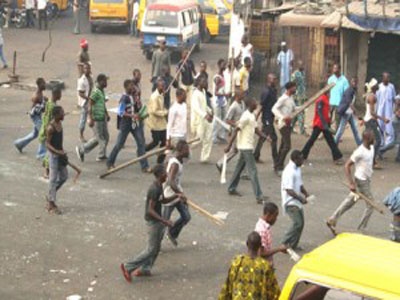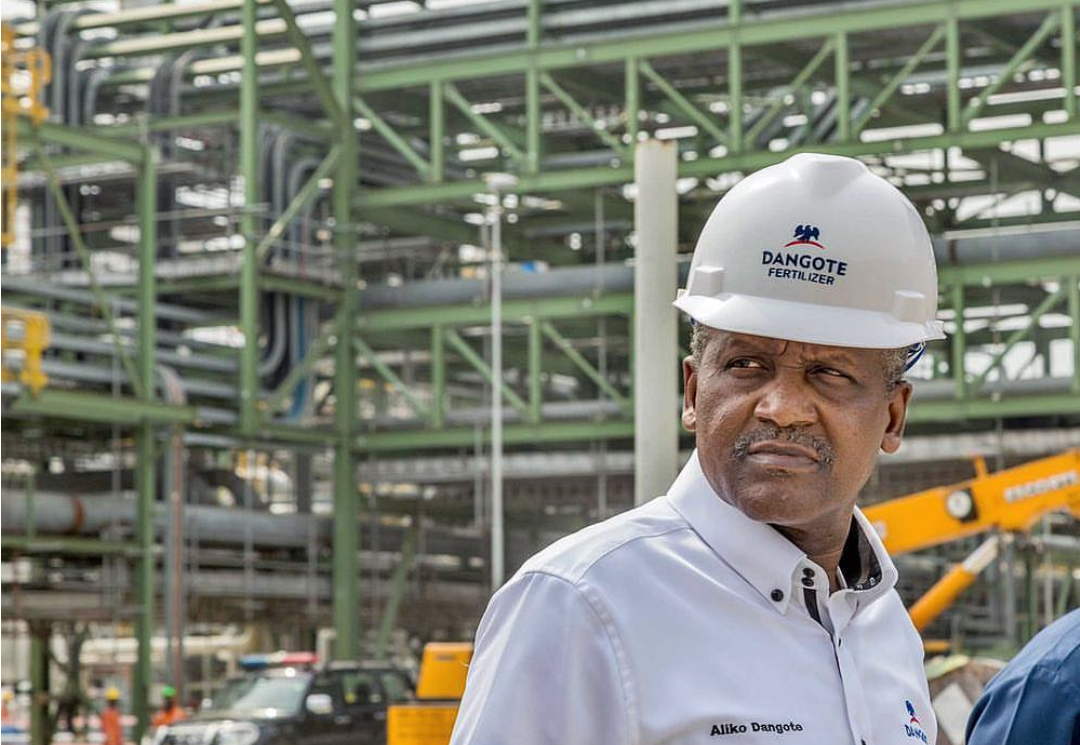By Eric Elezuo
Considering how things are in the country presently, the ‘on your mandate’ slogan of the then candidate of the All Progressives Congress (APC), who later emerged elected, that resonated during the 2023 presidential election, now sounds like a broken record. Many say it now leaves a sour taste in the mouth.
“Not many Nigerians are fit enough at the moment to stand on anything, not to talk of on a certain mandate that has become bad news,” a respondent told The Boss Newspaper, and the reasons are not farfetched.
President Bola Tinubu, who emerged winner of the February 25, 2023 presidential election, beating the candidates of the Peoples Democratic Party (PDP), Atiku Abubakar, and the Labour Party, Peter Obi, to the second and third positions respectively, had promised to hit the ground running from day one.
“Actually, Tinubu hit the ground running from day one, but it was obviously for and on the wrong reasons. He messed up the mandate from day one with the unprepared removal of petrol subsidy,” another respondent informed.
On May 29, 2023 when Tinubu was sworn as president, he declared in his inaugural address that ‘subsidy is gone’. That declaration triggered a chain reaction that Nigerians are to recover from, eight months into the administration. It took the price of petrol from N181 to a whopping N617. The spiral effects are better imagined. Every sector of the economy has been seriously affected, and poverty has become the order of the day.
Across the Yoruba states of Lagos, Ogun, Osun, Oyo, Ondo and Ekiti, complaints abound of how life has become unbearable for the citizens. Residents told The Boss that they are taking it personal because Tinubu is on the verge of disgracing the Yoruba race, that contributed to his ascendancy to presidential seat, through legitimacy, aggression and other means.
Among those that protested in some of the states were fish sellers, who lamented inability to make gains anymore amid the rising cost of fuel and every other item in the country.
Much as the government however, has tried introducing and implementing various policies in an attempt to cushion the effect of the harsh economic realities, the prices of food items, and services of every kind, continue to hit the roof, giving the so called poor masses no chance of survival, and no hope for tomorrow. No one is letting ‘the poor breathe’ in Tinubu government.
But among the major reactionaries to the hardship the Tinubu government has wrought on the people of Nigeria are the Yoruba tribe of Nigeria’s South West many of whom arguably voted for the president and stood stoutly in his favour during the electioneering period. These people are die hard fans of the ’emilokun’ agenda that preceeded and ran the aspirations of Tinubu.
On social media platforms, radio and television interviews and newspapers pages, netizens of Yoruba origin have pleaded with the President to soft pedal on his government’s policies, which rather make lives better, have continued to impoverished the citizens. They have separately pleaded with the president not to disgrace the Yoruba, noting that he has so far done everything wrong in the last eight months.
“I’m a Yoruba man, I regret voting for him because this is not what we bargained for,” has been the major refrain from reactions on social media space among those speaking out against the untold hardship the Tinubu-government has so far provided.
Another prominent Yoruba man was spotted on social, wearing a replica of Tinubu’s cap, lamenting the situation, and calling on the president not to bring disgrace on the Yoruba race. He said in part:
“President Tinubu, you are beginning to attract disgrace from Nigerians…if you listen to what Nigerians are complaining about; they are crying because of hunger. All the boys (appointees) working for you in Abuja cannot tell you the truth. You are disgracing us. When you were shouting Emilokan, you didn’t tell us it was your turn to make us suffer.
“There is insecurity. You went to Ogun State during campaign to prostrate to Nigerians to vote you. You are disgracing Yoruba. You should reshuffle your cabinet. All the people you appointed are your loyalists.”
Other regular citizens have taken the cue, calling on Tinubu to temper hardship with mercy as hunger reigns supreme in the land.
In a sermon before and after the elections, Leader of INRI Evangelical Spiritual Church, Primate Elijah Ayodele, told Nigerians that a vote for Tinubu is obviously a vote for hardship. He said Nigerians will suffer if Tinubu is elected as president.
After the Independent National Electoral Commission (INEC) announced Tinubu winner on March 1, 2023, Ayodele reacted to the victory. He said that:
“I am seeing a new government of sorrow, hardship, failure, and economic disappointment. There will be more hardship because God never approved another APC government for Nigerians. Under this new government, Nigeria will not be regarded internationally, this government will not make it better than what we experienced in the outgoing government.
“This is not the government God approved for us. God has not approved Nigeria to be an Islamic republic, he has not said Christians will not be part of the government but these people have berated God, they want to stir confusion in the religious sector but God has rejected them.
“INEC and APC colluded to steal the will of the people, God will definitely fight for the cause of the people at the appropriate time. Nigeria will not enjoy this government, even the APC will not enjoy this government and Tinubu will be the last president the party will produce. The party will go into oblivion very soon because the present government has deprived people of their rights, they have made people suffer and lose hope in democracy,” Ayodele said.
But of all reations directed at the president from his kinsmen, the one from his staunch loyalist and unofficial campaign vocalist, K1 de Ultimate, was the most prominent.
The veteran fuji musician, whose real name is Wasiu Ayinde, practically called out Tinubu, telling him to live up to expectation as Nigerians are living their worse lives in his government. He made the comments while performing on stage at the funeral of the mother of the Are Ago Iyalode of Ibadanland, Bolupe Aramide, held at the University of Ibadan Endowment Fund Hall, Oyo State.
In his usual streak, K1 said in sonorous tune, “Nigerians send their greetings. They said because I am a supporter of your administration. One who dwells in the Lord will see God’s face. Tinubu, hear what the world is saying. Everybody in the country is frustrated, and wants you to do something about the current situation, with the issue of fuel and dollars.
“Someone collecting salary wouldn’t be able to use it for anything. But, I know that my boss, Tinubu, is merciful; and God had given you everything before you took on the burden of being Nigeria’s president.
“My boss, find a solution to this situation. Citizens are suffering, and crying, and there isn’t power supply. Tinubu, please find a solution. All the bad people should find a place to hide. You are merciful, Asiwaju. All of us in Nigeria are angry. The issue of kidnapping is enough to cry over. Please, we beg you to find a solution. Let us be patient with all that the country is facing. The president has said he will make things better.”
Apart from making the remarks at a public gathering, and before notable Yoruba sons and daughters, including a wife of the Ooni of Ife, Olori Ashley Ogunwusi; wife of Olowu of Owu, Olori Saka Matemilola; Otun Iyalode of Egbaland, Taofeekat Babayemi; a former Minister of Industry, Nike Akande; Abiola Olatunji, Suliat Malo, Idowu Agarawu, and Folake Anifosowoshe, the saying has gone viral on the social space, eliciting reactions from all and sundry.
Earlier in the year when Tinubu visited Lagos, he was spotted driving through Lagos Island after attending Jumat with a retinue of aides and fleet of cars in his convoy. But the crowd that gathered around was not there to hail. They came to complain of the prevailing hunger in the land with shouts of ‘ebi mpa wa’ (we are hungry) renting the air.
But the loyalists of Tinubu in the presidency and cabinet have continually mount podiums to defend the president amid his failing policies, rising cost of living, unaffordable fuel products, lingering insecurity, occasioned by kidnappings for ransom, killings among many others.
In his defense, the Minister of Information and National Orientation, Mohammed Idris Malagi, who spoke during a programme on Channels Television, defended the decision of President Bola Tinubu, saying Nigeria would have been worse off if petrol subsidy was not removed.
“You are premising your argument on the fact this problem just started yesterday. The foundation of our economy had taken a beating a long time ago. The substructure of our national economy has been one that cannot hold a meaningful substructure on it.
“So, it is important that Nigerians recognise that the President and his team would have to go back to reset that and that is why from day one, he said, ‘Look, subsidy issue has to go’. He had to expect that there would be this pain, of course. He anticipated that Nigerians would encounter some difficulties. But it would be worse if that subsidy did not go. It would have been difficult to carry out any meaningful development. We needed to free up resources.”
But while the Yoruba are pleading for a face saving, Nigerians in general are wondering if there is an end to the excruciating pains the populace are experiencing in the present dispensation. They recalled that the eight years of former President Muhammadu Buhari was clueless, and reduced Nigerians to less than citizens.
“The way it is, it appears Tinubu is contesting with Buhari to know who takes the crown of Nigeria’s worse president,” an analyst said.
Time, surely, will tell.

 News6 years ago
News6 years ago
 Featured6 years ago
Featured6 years ago
 Boss Picks6 years ago
Boss Picks6 years ago
 Headline6 years ago
Headline6 years ago
 Headline6 years ago
Headline6 years ago
 Headline6 years ago
Headline6 years ago
 Headline6 years ago
Headline6 years ago
 Headline6 years ago
Headline6 years ago













